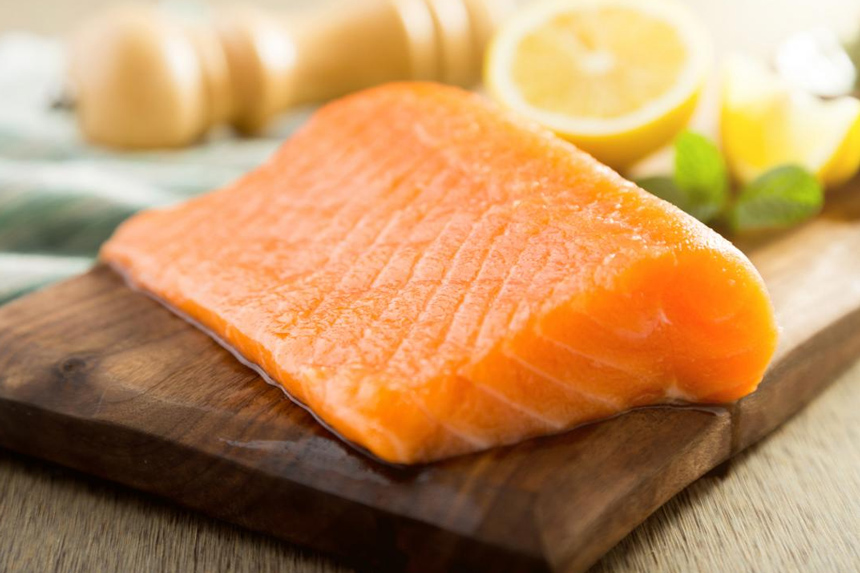Oily Fish

Oily fish, including salmon, black cod, mackerel, herring, and sardines, are excellent sources of omega-3 fatty acids. These fatty acids play a crucial role in heart health by reducing inflammation, improving blood vessel function, and lowering the risk of heart disease. The AHA recommends consuming at least two servings of fish per week to harness these benefits.
It’s important to note that certain groups, such as children, pregnant individuals, and breastfeeding individuals, should be cautious about fish choices due to potential mercury exposure.
Opting for smaller fish and avoiding high-mercury options, as advised by the Food and Drug Administration (FDA) and ensures the heart-protective benefits of omega-3 fatty acids without compromising overall health. [5] [6]
Nuts

Nuts, including peanuts, walnuts, almonds, Brazil nuts, hazelnuts, pecans, and cashews, are nutrient-dense additions to a heart-healthy diet. While they are energy-dense, their consumption has been associated with a lower risk of heart disease. Recent researches like this paper in the American Journal Of Clinical Nutrition suggests that regular nut intake may contribute to improved cholesterol levels and reduced inflammation.
Considering budget and caloric intake, individuals can adjust their nut consumption, balancing it with other sources of heart-healthy nutrients. Whether enjoyed as a snack or incorporated into meals, nuts offer a satisfying and heart-supportive addition to a well-rounded diet. [7]





